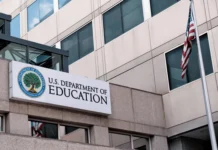
Many people believe since the President of the United States is a Black man, then everything must be equal now. We’ve been hearing post-racial this and post-racial that and that it’s time to move past discussions about race and inequality and all that unpleasant stuff, even when it comes to education.
However, the National Association for Multicultural Education (NAME) which recently held its 22nd Annual International conference in Philadelphia, PA, understand just how critical it is to examine how race factors into issues of equality in education in the United States. NAME is an organization developed to advance and advocate for equity and social justice through multicultural education. The theme of this year’s conference was: Realizing the Power of Movements through Multicultural Education. Educators from around the world convened to discuss how movements toward equity and social justice from revolutions to sit-ins, and strikes, have the power to change lives at the local, national, and global levels. Despite the informative and engaging dialogue, many wonder if multicultural educational organizations are still needed? It was clear at this conference that hundreds of educators and policy makers, feel that the need for this type of organization is still paramount. You may wonder why this is the case?
Well, multicultural education remains relevant to all aspects of education because it is at the very heart of what an equal as well as equitable education means to the healthy development of not only the country but the world. There must be ongoing dialogue regarding culturally relevant pedagogy and what that means for the achievement of all children. According to a recently published article by Education Week, the enactment of The No Child Left Behind Act of 2001, made the achievement gap more transparent because data had to be disaggregated by student characteristics such as race, gender, and socioeconomic status. This transparency, however, did not put the energy into developing the answers needed to explain and close the gap but rather highlighted the fact that these complex issues indeed exist. This is the purpose of organizations such as NAME — to find answers to difficult questions in order to help all children have access to quality education, thus improving outcomes in the classroom and society.
The conference reminds educators that the fight is not over for all children to receive an equitable education, regardless of race, gender, or socioeconomic status. In many states, the battle is being fought for funding equality because there is still an inequality that exists regarding spending per pupil. California anyone? The battle on that front as well as many others, is still being fought.
In times where educators are under attack, the NAME conference encourages educators to be steadfast in the development of the whole child versus the test-taking child. Frederick Douglass, Marianne Williamson, and Margaret Mead were all highlighted at the conference to re-instill the adage “If there is no struggle then there is no progress”, “It is not our inadequacy that scares us but rather our power”, and “Change begins with a small group of committed citizens” respectively. Perhaps this is the group that will struggle for the change that will eradicate the achievement gap in addition to all of the other education inequities that impede children from being the best citizens they can be.
Rhonda J. Summey, Ed.D. is an educator in the Prince Georges County School system. She holds education degrees from Northwestern University, Harvard University and George Washington University.
Like The Burton Wire on Facebook. Follow us on Twitter @TheBurtonWire.








